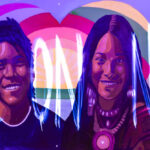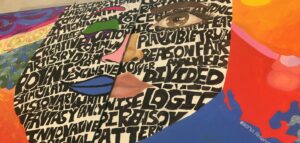“Every word you sang came from a place of knowing what it means to be othered in a country that promises inclusion. Using your gift to advocate for Justice is what true leaders do. Your voice is powerful. Thank you Jully, we stand with you.” ❣️ #JaneFinch #Family #truthandreconciliation #realtalk
- Kayode Brown – Instagram
Jully Black is a Canadian R&B artist with a long history of community activism and social justice work. She grew up in Toronto’s Jane Finch community, a neighbourhood with a large Black and Indigenous population that has been home for some of the nations greatest artist including Luther Brown, Jae Blaze, Glen Lewis and many others. Black has spoken openly about her experiences growing up in Jane Finch and the challenges faced by its residents, including poverty, racism, and violence.
She has also been a vocal advocate for social change and has used her platform to support causes like mental health, education, and Indigenous rights. Black’s decision to change the Canadian national anthem during the NBA all-star game was another example of her commitment to social justice and inclusivity. By using her voice and platform to bring attention to important issues, Black has become a role model for many Canadians and a symbol of hope for marginalized communities across the country.
During the NBA all-star game in 2023, Canadian R&B artist Jully Black made a bold statement by changing a line in the Canadian national anthem. Instead of singing “Our home and native land,” Black sang “Our home on Native land.” Her decision was met with both support and criticism, but it sparked an important conversation about inclusivity and representation in Canada’s national symbols.
The original line, “Our home and native land,” has been a part of the anthem since its inception, and it has undergone little change over the years. However, many Canadians have pointed out that the line is not reflective of the country’s history or its current reality. Indigenous peoples have been living on this land for thousands of years, and their contributions and perspectives are an essential part of Canada’s story. By changing the lyric to “Our home on Native land,” Black acknowledged this history and brought attention to the ongoing struggles for Indigenous rights and recognition.
Black’s decision to change the anthem was a powerful and symbolic act that sparked a larger conversation about the importance of representation and inclusivity in Canadian society. It also highlighted the need for ongoing efforts to decolonize and Indigenize our national symbols and institutions. While some may see Black’s change as controversial or unnecessary, it is ultimately a step towards a more inclusive and respectful Canada.






























